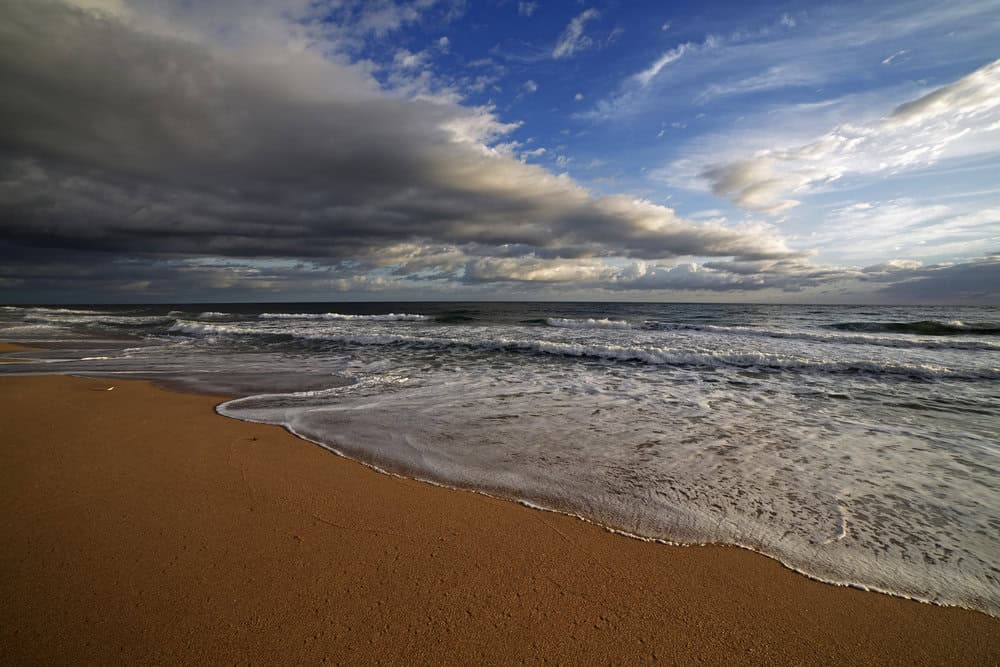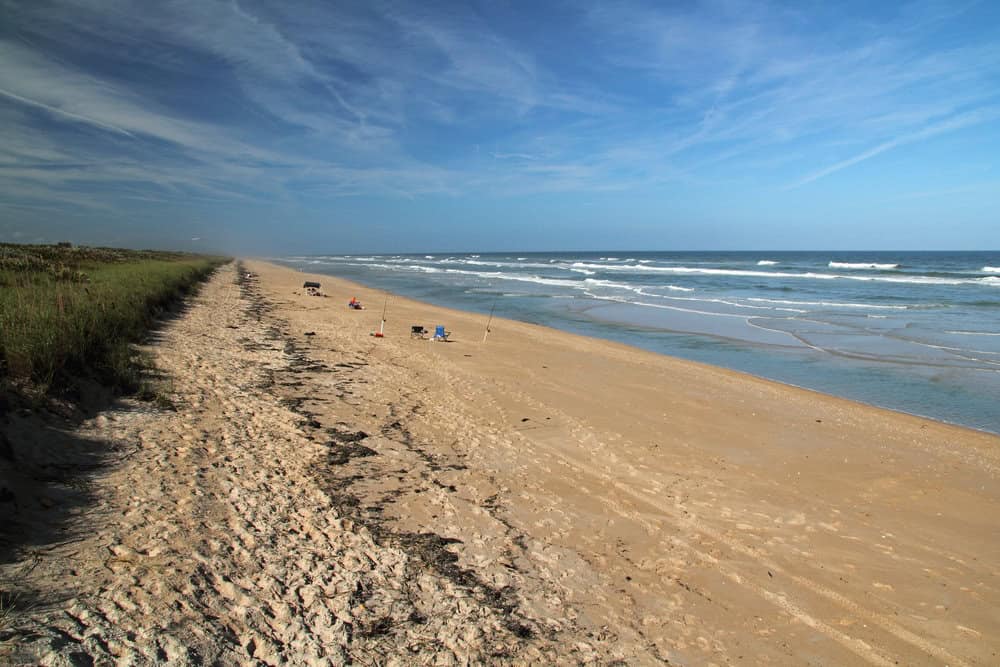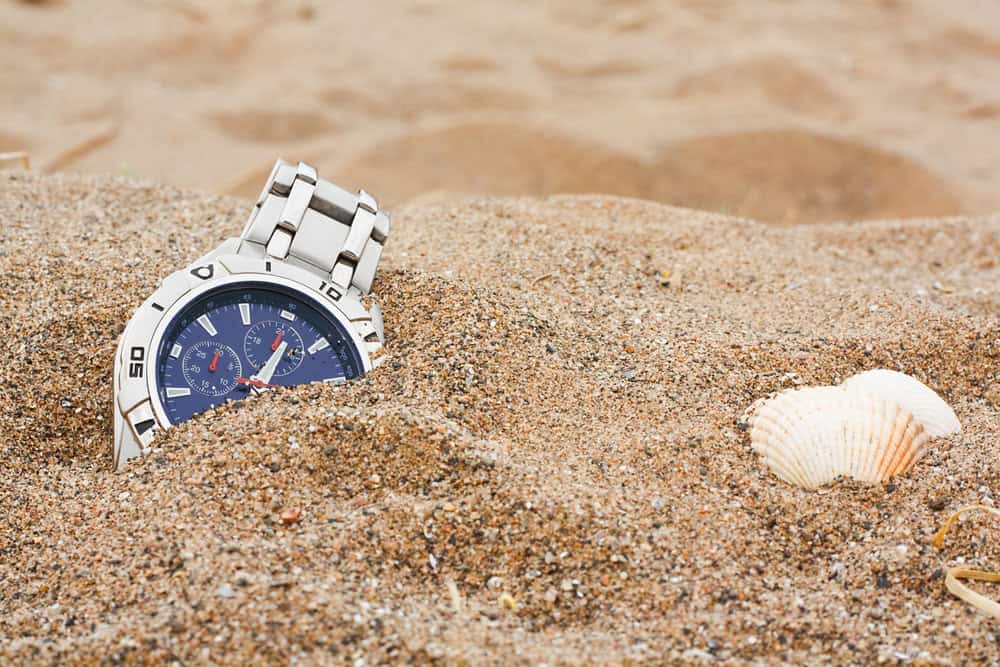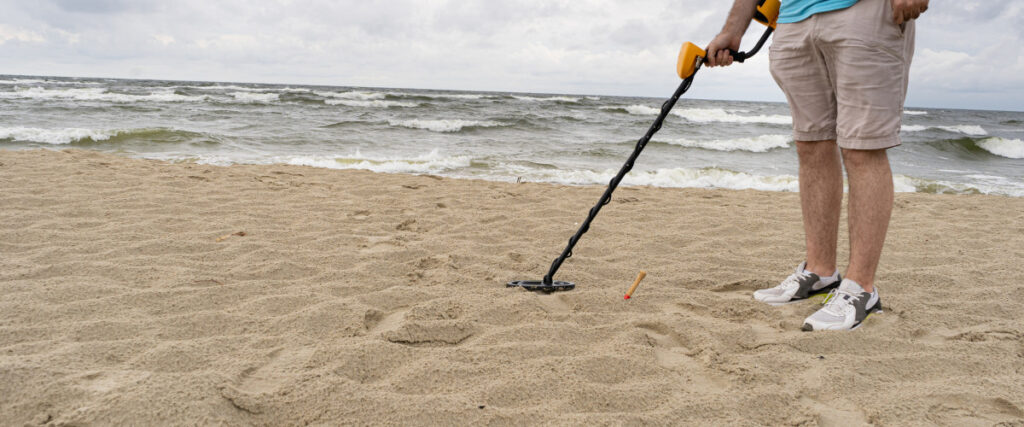Florida’s sun-kissed beaches, with their soft sand and inviting waves, have long been popular destinations for relaxation and recreation. However, beneath the pristine shorelines lie stories of shipwrecks, lost treasures, and centuries of history waiting to be discovered by treasure hunters armed with metal detectors.
- 1. Vero Beach
- 2. Bonsteel Park Beach
- 3. Sebastian Inlet State Park
- 4. Lori Wilson Park Beach
- 5. Daytona Beach
- 6. Aquarina Beach
- 7. Canaveral National Seashore
- 8. Pepper Park Beach
- 9. Little Talbot Island State Park
- 10. Venice Beach
- Metal Detecting in Florida: Rules and Regulations
- Best Time for Treasure Hunting
- Factors to Consider When Choosing a Metal Detector
- Tips and Tricks for Effective Metal Detecting
In this comprehensive guide, we’ll take you on a journey to the best beaches in Florida for metal detecting, revealing the locations, addresses, hours of operation, and any associated costs, all while exploring the fascinating world of treasure hunting along the Treasure Coast and beyond.

1. Vero Beach
Location: Vero Beach, Florida
Address: South Beach Park, 1702 Ocean Dr, Vero Beach, FL 32963
Hours: Dawn to Dusk
Cost: Free
Vero Beach, situated on Florida’s Treasure Coast, is a treasure hunter’s paradise. Known for its rich history of shipwrecks, Vero Beach has yielded numerous valuable artifacts and precious items over the years.
Public beaches like South Beach Park offer ample opportunities for metal detectorists to explore the sandy shores and discover hidden treasures from Spanish ships and other historical sources.
2. Bonsteel Park Beach
Location: Ormond Beach, Florida
Address: Bonsteel Park, 2 S Beach St, Ormond Beach, FL 32174
Hours: Dawn to Dusk
Cost: Free
Ormond Beach’s Bonsteel Park is a fantastic location for those seeking a quieter and more serene treasure hunting experience. The beach’s accessibility and the historical significance of the area make it an excellent place for metal detecting.

3. Sebastian Inlet State Park
Location: Melbourne Beach, Florida
Address: Sebastian Inlet State Park, 9700 S Highway A1A, Melbourne Beach, FL 32951
Hours: 24 hours (Park hours may vary; check with park rangers)
Cost: Park entrance fee
Sebastian Inlet State Park is another renowned location for treasure hunting along Florida’s east coast.
The park’s beaches, including Wabasso Beach, offer ample opportunities for metal detectorists. Be sure to check with park rangers for any specific rules or regulations regarding metal detecting within the park.
4. Lori Wilson Park Beach
Location: Cocoa Beach, Florida
Address: Lori Wilson Park, 1500 N Atlantic Ave, Cocoa Beach, FL 32931
Hours: Dawn to Dusk
Cost: Free
Cocoa Beach, known for its beautiful coastline and surf culture, is also a great spot for metal detecting. Lori Wilson Park Beach offers ample opportunities for treasure hunting, and the soft sand makes it an excellent location for metal detectorists.

5. Daytona Beach
Location: Daytona Beach, Florida
Address: Various access points along the beach
Hours: Public beach access, daylight hours
Cost: Varies by access point (Some may have parking fees)
Daytona Beach, known for its lively atmosphere and racing heritage, also holds hidden treasures within its sands.
While metal detecting is permitted on public beaches during daylight hours, it’s essential to respect the rules and guidelines of each specific beach access point.
6. Aquarina Beach
Location: Melbourne Beach, Florida
Address: Aquarina Beach and Country Club, 7500 S Hwy A1A, Melbourne Beach, FL 32951
Hours: Dawn to Dusk
Cost: Free
Aquarina Beach, nestled within the Aquarina Beach and Country Club, is a lesser-known gem for treasure hunters. The beach’s tranquility and soft sand make it an ideal spot for metal detecting. Ensure you adhere to any specific rules and regulations of the private property.

7. Canaveral National Seashore
Location: Cape Canaveral, Florida
Address: Canaveral National Seashore, 212 S Washington Ave, Titusville, FL 32796
Hours: 24 hours (Park hours may vary; check with park rangers)
Cost: Park entrance fee
Canaveral National Seashore, a protected natural area, stretches along Florida’s east coast and offers a unique opportunity for treasure hunting.
While metal detecting is allowed in specific areas, it’s crucial to follow park rules and regulations. The park’s rich history includes Spanish shipwrecks and a treasure trove of historical artifacts.

8. Pepper Park Beach
Location: Fort Pierce, Florida
Address: Pepper Park Beach, 3302 North A1A, Fort Pierce, FL 34949
Hours: Dawn to Dusk
Cost: Free
Fort Pierce, part of the Treasure Coast, lives up to its name with its history of treasure finds.
Pepper Park Beach, a public beach in the area, provides an excellent opportunity for metal detecting enthusiasts to search for valuable items along the shoreline.

9. Little Talbot Island State Park
Location: Jacksonville, Florida
Address: Little Talbot Island State Park, 12157 Heckscher Dr, Jacksonville, FL 32226
Hours: 8 a.m. to sunset (Park hours may vary; check with park rangers)
Cost: Park entrance fee
Little Talbot Island State Park, situated in northeast Florida, offers a peaceful setting for metal detecting.
With its pristine beaches along the Atlantic Ocean, this park provides a serene backdrop for treasure hunting. Always check with park authorities for specific rules and areas where metal detecting is allowed.

10. Venice Beach
Location: Venice, Florida
Address: Various access points along Venice Beach
Hours: Public beach access, daylight hours
Cost: Varies by access point (Some may have parking fees)
Venice Beach, located on Florida’s west coast, is known for its stunning white sand and warm waters.
While it’s a popular destination for beachgoers, it’s also a great place for metal detector enthusiasts to comb the shores in search of hidden treasures. Be sure to follow local regulations when metal detecting on public property.

Metal Detecting in Florida: Rules and Regulations
Before embarking on your treasure hunting adventure, it’s crucial to familiarize yourself with the rules and regulations governing metal detecting in Florida. Here are some essential guidelines to keep in mind:
- Respect Private Property: Ensure you have permission from property owners before detecting on private property.
- State and Federal Parks: While metal detecting is allowed in some state parks, national parks, and national seashores, specific rules and areas may apply. Always check with park rangers for guidance.
- Local Authorities: Some municipalities may have different rules regarding metal detecting on public beaches. Be sure to follow any local regulations and ordinances.
- High-Tide Line: When detecting on beaches, focus your search above the high-tide line or high tide mark to avoid disturbing sensitive coastal ecosystems.
- Archaeological Sites: Metal detecting is prohibited at archaeological sites, historical sites, and military installations.
- State Laws of Antiquities: Be aware of Florida’s laws regarding antiquities, and report any significant finds to local authorities as required by law.
Best Time for Treasure Hunting
The best time for metal detecting on Florida beaches is during low tide. This is when the water recedes, revealing more of the sandy shoreline and exposing any buried treasures. Low tide also allows for easier access to areas that may be submerged during high tide.
Additionally, early mornings or late afternoons can be ideal times for treasure hunting, as the beaches are less crowded, and the sun’s angle can help reveal shiny objects in the sand.
Metal detecting is an exciting hobby that allows enthusiasts to uncover hidden treasures and artifacts buried beneath the earth’s surface. Whether you’re a beginner or a seasoned detectorist, selecting the right metal detector is crucial for a successful and enjoyable experience. In this guide, we’ll explore the essential factors to consider when choosing a metal detector and provide valuable tips and tricks to enhance your treasure-hunting skills.

Factors to Consider When Choosing a Metal Detector
Buying a great metal detector is key to having fun detecting new treasures on the beach!
- Purpose and Location:
- Determine your primary metal detecting goals. Are you interested in beach hunting, coin shooting, relic hunting, or gold prospecting? Different detectors excel in specific areas.
- Consider the geographical locations where you plan to use your metal detector. For example, saltwater beaches, parks, forests, and mineralized soil all present unique challenges.
- Type of Detector:
- There are three main types of metal detectors:
- Very Low Frequency (VLF): Ideal for general-purpose use, including coin shooting, jewelry hunting, and relic hunting. VLF detectors are versatile and suitable for most environments.
- Pulse Induction (PI): PI detectors are excellent for beach hunting, gold prospecting, and diving, as they can ignore mineralization and work well in saltwater.
- Beat-Frequency Oscillation (BFO): BFO detectors are typically the most budget-friendly and are suitable for beginners. They work best for finding larger objects but may not be as sensitive to small, valuable items.
- There are three main types of metal detectors:
- Frequency:
- Detector frequency affects its sensitivity to different types of metals. Lower frequencies (e.g., 3-7 kHz) are more sensitive to high-conductivity metals like coins and jewelry, while higher frequencies (e.g., 15-30 kHz) are better for low-conductivity metals like gold.
- Search Coil Size:
- The size of your detector’s search coil impacts its depth and target separation capabilities. Larger coils cover more ground but may not detect smaller items as effectively as smaller coils.
- Ground Balance:
- Ground mineralization can interfere with metal detection. Look for detectors with adjustable ground balance settings, especially if you plan to hunt in mineralized soil or saltwater.
- Weight and Ergonomics:
- Consider the weight and ergonomics of the metal detector, especially if you plan on long detecting sessions. Lightweight and well-balanced models are more comfortable to use.
- Digital Target ID:
- Some detectors offer digital target identification, displaying the type of metal detected on a screen. This feature can help you distinguish between trash and valuable finds.
Tips and Tricks for Effective Metal Detecting
- Learn Your Detector:
- Read the user manual and familiarize yourself with your metal detector’s settings and functions. Understanding how to adjust sensitivity, discrimination, and ground balance is essential for successful hunting.
- Start in Familiar Locations:
- If you’re a beginner, begin your metal detecting journey in familiar areas like local parks, beaches, or playgrounds. This will help you gain confidence and experience.
- Listen to the Signals:
- Pay close attention to the audio signals your detector produces. Different tones or patterns can indicate various types of targets. Practice listening for subtle changes in tone.
- Proper Swing Technique:
- Swing your detector coil in a slow and controlled manner, keeping it close to the ground. Overlapping your sweeps ensures complete coverage.
- Digging Techniques:
- Use a digging tool, such as a trowel or hand digger, to retrieve targets efficiently. Dig neat and shallow holes to minimize disruption to the environment.
- Pinpointing Targets:
- Once you locate a target, use the pinpoint mode or a handheld pinpointer to precisely identify its location within the hole.
- Be Respectful:
- Always follow local laws and regulations regarding metal detecting. Seek permission from property owners when detecting on private land, and be respectful of public spaces.
- Carry Essential Gear:
- Pack essentials such as a digging tool, headphones to hear signals clearly, gloves, and a pouch or bag for your finds.
- Stay Persistent:
- Success in metal detecting often comes with persistence. Don’t get discouraged by days with few or no valuable finds. Keep practicing and learning.
- Join a Metal Detecting Community:
- Connect with other detectorists through local clubs or online forums. Experienced detectorists can offer valuable tips, advice, and insights into your specific area.
- Research and Reconnaissance:
- Conduct research on the history of the areas you plan to hunt. Historical maps, old photographs, and local stories can help you identify potential hotspots.
- Stay Safe:
- Be mindful of your surroundings and the terrain you’re detecting in. Watch out for hazards like sharp objects, uneven ground, or wildlife.
- Document Your Finds:
- Keep a log or take photographs of your finds, including date, location, and any relevant details. Documenting your discoveries adds to the excitement and helps you track your progress.
Remember that successful metal detecting takes time and practice. With the right equipment, knowledge, and techniques, you’ll be well on your way to unearthing hidden treasures, whether they’re historical artifacts, valuable coins, or items of personal significance. Enjoy the thrill of the hunt and the sense of discovery that metal detecting offers.
Florida’s beaches, with their long history and unique coastal locations, offer metal detector enthusiasts a fantastic opportunity to unearth hidden treasures and connect with the state’s rich heritage. From the Treasure Coast to the east coast and the Gulf of Mexico to the west, there are countless possibilities for those willing to explore the sandy shores in search of valuable relics and historical artifacts. Always remember to respect local rules and regulations, and enjoy the thrill of discovering Florida’s hidden gems while metal detecting along the Sunshine State’s beautiful coastline.




